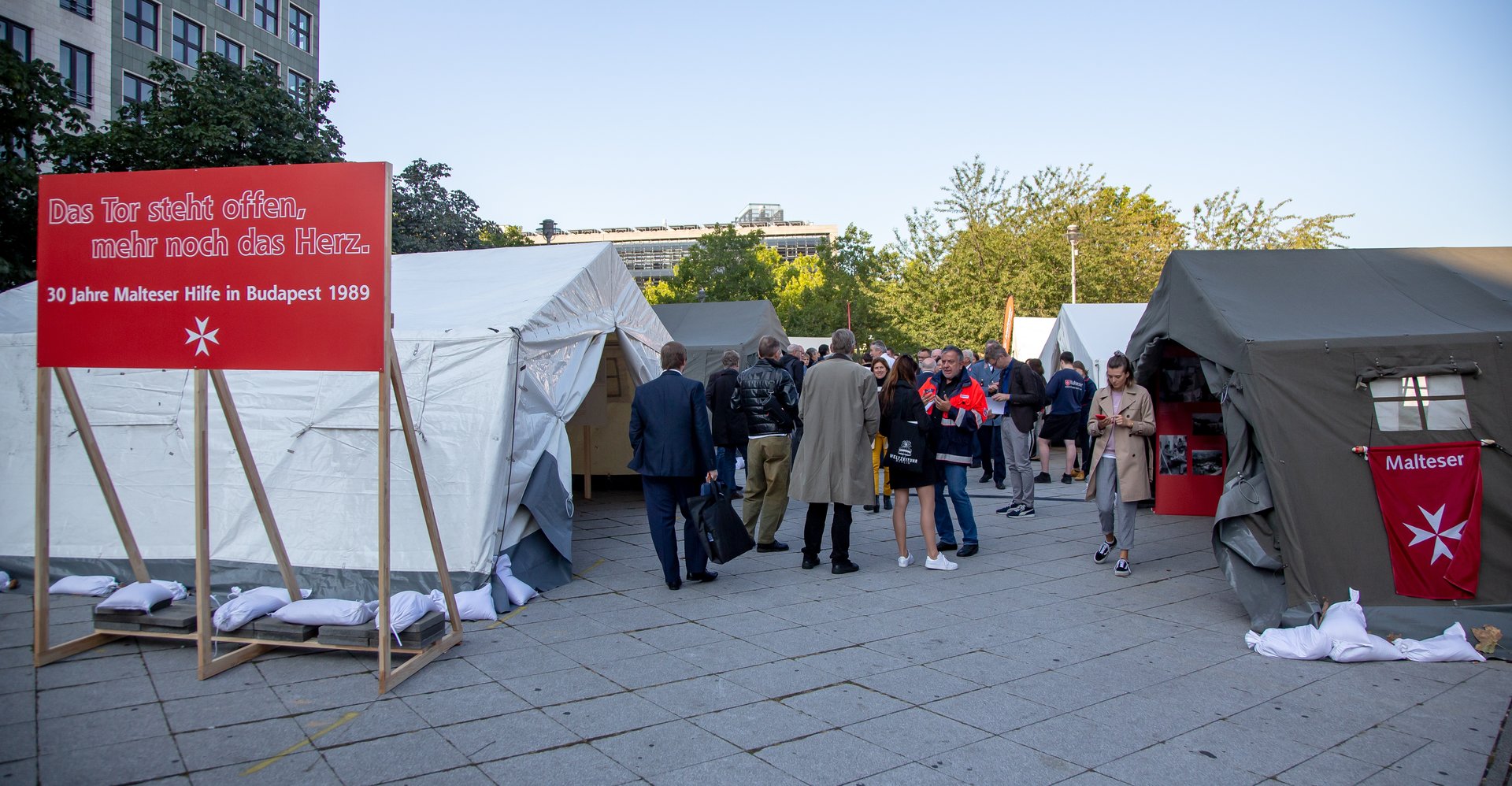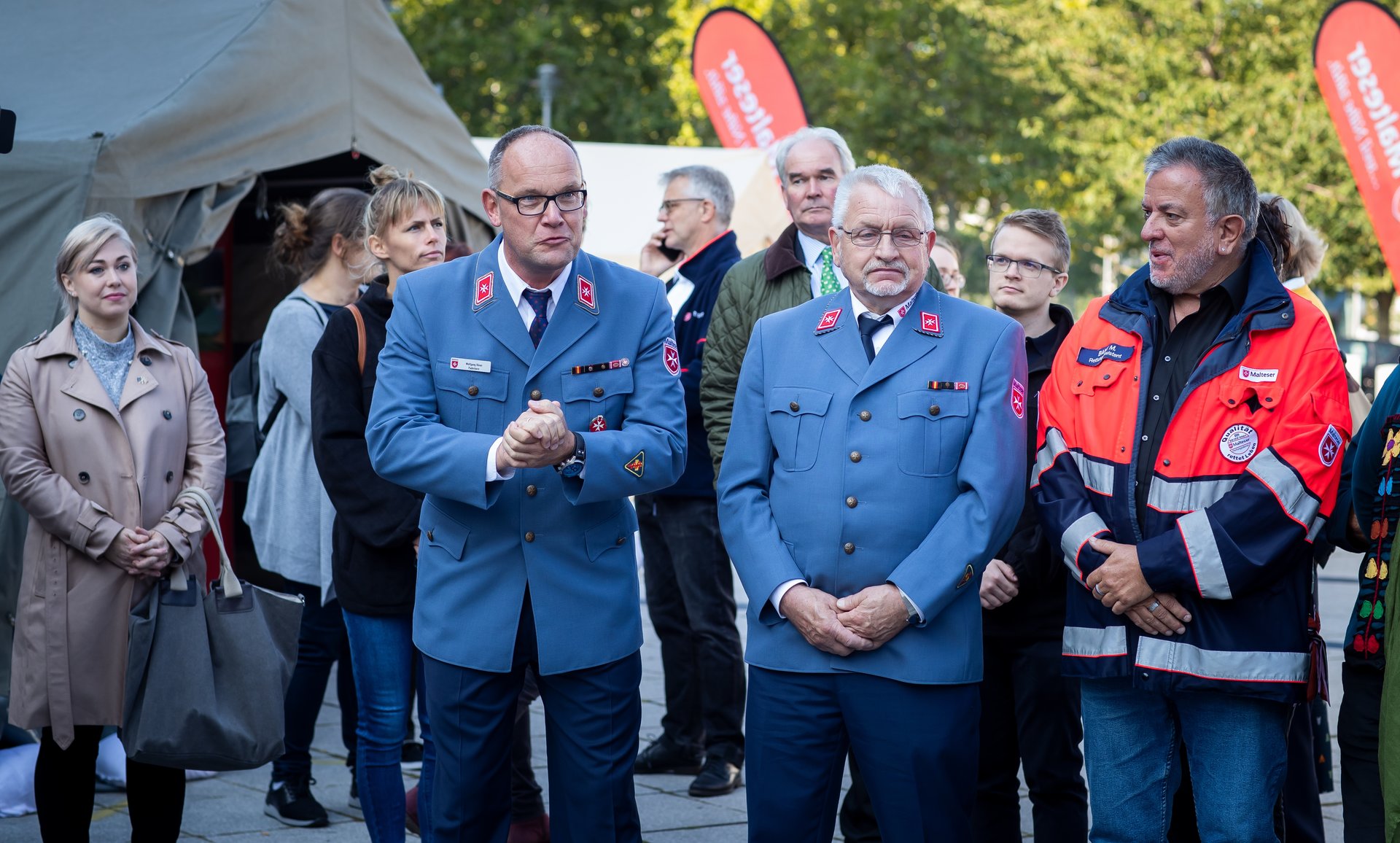The feelings of anxiety and hope experienced in those days of the summer of 1989 are still well imprinted in their memory. And when today, 30 years on, many of the refugees of that time meet in Berlin to remember the camps set up by the Order of Malta’s volunteers in Budapest, which played a large part in the subsequent fall of the Wall, many emotions and images come to life.
This explains the great success of the initiative of the Malteser Deutschland (organization of the German Association of the Order of Malta) to set up an exhibition entitled “Memoirs of Budapest 1989 – Contemporary Witnesses”, in the Dorothea Schlegel Platz in Berlin on 10 and 11 September. The exhibition was intended to tell, through photographs and testimonies, the story of the gigantic reception and rescue action provided for three months by the Order of Malta Hungarian volunteers during the hectic weeks prior to the fall of the Wall.
Many citizens of the DDR left for Hungary with the excuse of going on holiday but with the intention of fleeing to the West. The German embassy in Budapest had to close due to overcrowding and so the volunteers set up an emergency and assistance centre in the square opposite the church in Zugliget. In total, about 55,000 citizens of the DDR were assisted in Hungary. The pressure exerted on their government contributed to the fall of the Wall.
“It was a tense and distressing period,” recalls today an East German refugee, Uwe Schiller, who fled with his wife and two children. “Finding support in the Order of Malta’s volunteer camp made things easier for us. The help and solidarity were overwhelming”. The then 19-year-old Tilo Acksel, who was denied the dream of becoming an actor at home, explains: “Budapest became a symbol for the mass exodus, if so many people had not passed through Hungary to the West, the Wall would not have fallen”, he says with conviction today.
At that time, the Hungarian volunteers of the Order simply did what they still do today: they were there to help and provide assistance – “weil Nähe zählt” as the Malteser motto says “proximity makes a difference”, i.e. they tried to give confidence and hope in those uncertain and confused days.


















